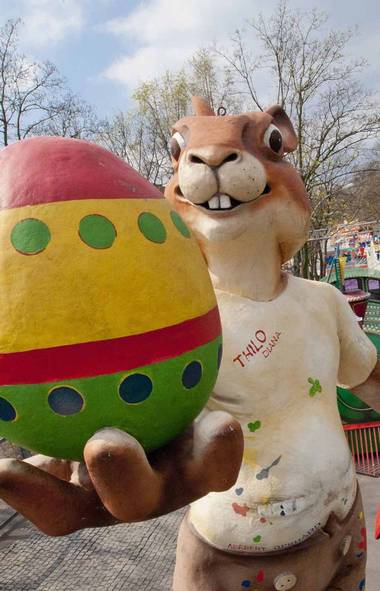Easter 2016: What do bunny rabbits and chocolate eggs have to do with Easter anyway?

For many years, the bunny rabbit has been associated with the celebration of Easter but the origin of its association is something of a puzzle.
According to a report by Times, while there is no mention in the Bible of the cuddly animal during the resurrection of Jesus, the rabbits may be rooted in paganism instead of Christian tradition as the animal is associated with Eostre, the goddess of fertility. Even in popular culture, rabbits are known for their ample breeding.
According to the report, a study by the University of Florida's Center for Children's Literature and Culture cited pagan practices from 13th century Germany in which people celebrated the Vernal Equinox in honor of Eostre.
Eggs on the other hand represent new life and are a tradition dating back to the 13th century when churches and congregations abstained from eggs during the Lenten season. They were only allowed to eat eggs again on Easter Sunday. The practice of decorating eggs is unclear as some sources cited 13th century practices while History.com says it may hail from Russian high society which saw aristocrats exchange eggs decorated with ornate paint and jewelry at Easter.
While the origin of the Easter bunny and his relation to the Lord's resurrection remains sketchy, his earliest documented activity was in the 1500s. The first published story about a bunny laying eggs and hiding them in a garden was released in 1680, according to a report by Discovery.com.
There is another version that the legend originated from German immigrants who migrated to Pennsylavnia Dutch Country, which started the tradition of making nests for the Easter bunny to lay eggs on, as well as the annual Easter Egg hunt that came with treats and other small gifts for children.











